Ukraine's Zelensky hints at holding referendum on Crimea, Donbass
Ukrainian President Volodymyr Zelensky has suggested holding a referendum on the future status of eastern Ukraine as well as the Crimea peninsula as a way to restore the stalled peace efforts and end hostilities with neighboring Russia.
"I do not rule out a referendum on Donbass in general," Zelensky stated Friday in an interview with the local 1+1 television channel," vaguely noting, "It might be about Donbass, it might be about Crimea, it might be about ending the war in general. So it may be that someone, this or that country can offer us certain conditions."
Ukraine's Western-backed president, however, did not elaborate on how and when a referendum would be held but described it as one of the options available to revive the mired peace process in the war-torn eastern Ukraine -- where pro-Russia forces are seeking independence from Kiev -- and end persisting hostilities with Moscow.
Zelensky also welcomed what he described as a "personal role" taken by US President Joe Biden in efforts to end the war in eastern Ukraine, saying that the American president had conveyed Russian reassurances that Moscow would not cause an escalation.
The Ukrainian leader further stated that he would not rule out direct talks with Russian President Vladimir Putin.
Macron dismisses 'self-fulfilling' US intel on Russia threat
French President Emmanuel Macron warned on Friday about the risk of "self-fulfilling" prophecies after a US intelligence assessment alleged Russian plans to invade Ukraine next year.
"I think that our primary objective is to avoid any unnecessary tension, what I will call self-fulfilling news," Macron said, when asked about the US intel report.
"What we all want, Europeans and Americans, is to show that we are paying close attention to the situation," he further emphasized during a joint press conference with Germany's new Chancellor Olaf Scholz.
Macron also noted that he had spoken with Zelensky earlier on Friday and that they would discuss new initiatives to unlock peace talks on the eastern Ukraine conflict when they meet next week.
The German chancellor also vowed to launch further peace measures for Ukraine, saying, "We have a good basis that needs to be revived - for example the talks in the Normandy format," referring to the talks between Germany, France, Russia and Ukraine meant to help solve the crisis.
The development came as Ukraine has scrambled in recent weeks to shore up support from its Western allies, accusing Russia of amassing tens of thousands of troops near its borders in preparation for what Kiev alleges to be a potential major military offensive.
Moscow has strongly denied such allegations and accused Kiev and Washington of engaging in destabilizing behavior, further insisting that it needs security guarantees for its own protection.
Rejecting Moscow's demands for security guarantees as illegitimate, Zelensky also claimed on Friday that Biden had not tried to force concessions on him, saying, "We didn't talk about any compromises."
Meanwhile, Russia's Deputy Foreign Minister Sergei Ryabkov emphasized on Thursday that the growing tensions between Moscow and Washington over the situation around Ukraine could culminate in a repeat of the 1962 Cuban missile crisis that pushed the world to the brink of a full-scale nuclear war.
"You know, it really could come to that," Ryabkov said as quoted by Russia’s Interfax news agency. "If things continue as they are, it is entirely possible by the logic of events to suddenly wake up and see yourself in something similar."
The Cuban crisis was sparked by the deployment of Soviet-era nuclear missiles on the Caribbean island, prompting the US to impose a naval blockade to prevent Moscow from shipping in more.
Ryabkov’s remarks came amid escalating tensions between Washington and Moscow over Ukraine and the Black Sea region.
Also on Thursday, Russian President Putin denounced the oppression against ethnic Russians in Ukraine’s east as “certainly looking like genocide” in remarks aimed at addressing the issue of discrimination against Russian speakers beyond Russia’s borders, many of whom live in the Donbass region of eastern Ukraine.
“I have to say that Russophobia is a first step toward genocide,” Putin added. “We see and know what is happening in the Donbass. It certainly looks like genocide.”
Ukraine as well as the EU and the US also claim Russia has a hand in an ongoing conflict that erupted in the Donbass region of Ukraine between government forces and ethnic Russians in 2014. The West imposed sanctions on Russia after accusing it of interfering in the conflict. Moscow denies the allegation.
Ukraine claims that Russia has deployed heavy-armored vehicles, electronic warfare systems and nearly 100,000 soldiers around its borders, while Russia says Ukraine has deployed half of its army, or 125,000 troops, to the ethnic Russian region of Donbass, calling it “very dangerous adventurism” by Kiev.
The Kremlin has warned that the US and NATO are turning Ukraine into a “powder keg” by increasing arms supplies to Kiev and inflaming tensions in the country's volatile east.
Israel preparing to stay in southern Lebanon after ceasefire: Report
Israeli pressure on Hamas ‘hardly helped’; swap deal necessary: Ex-Mossad chief
Far-right Israeli minister Ben-Gvir again storms al-Aqsa Mosque
Iran: Israel’s attack on journalists’ vehicle in Gaza amounts to ‘war crime’
VIDEO | Israel’s war spending
Palestine Action wins again
VIDEO | Palestinian Authority's blockade of Jenin refugee camp reaches third week
Dec. 25: ‘Axis of Resistance’ operations against Israeli occupation


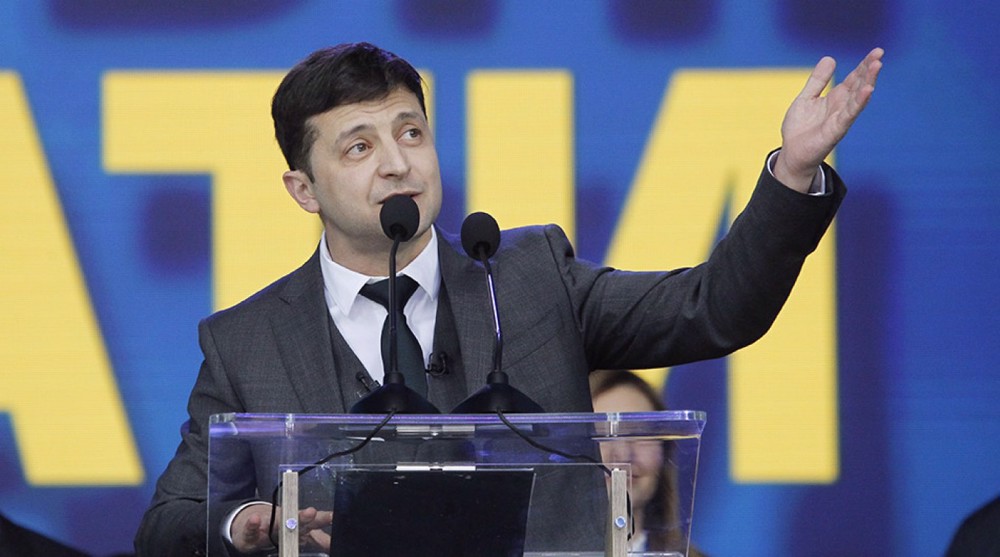
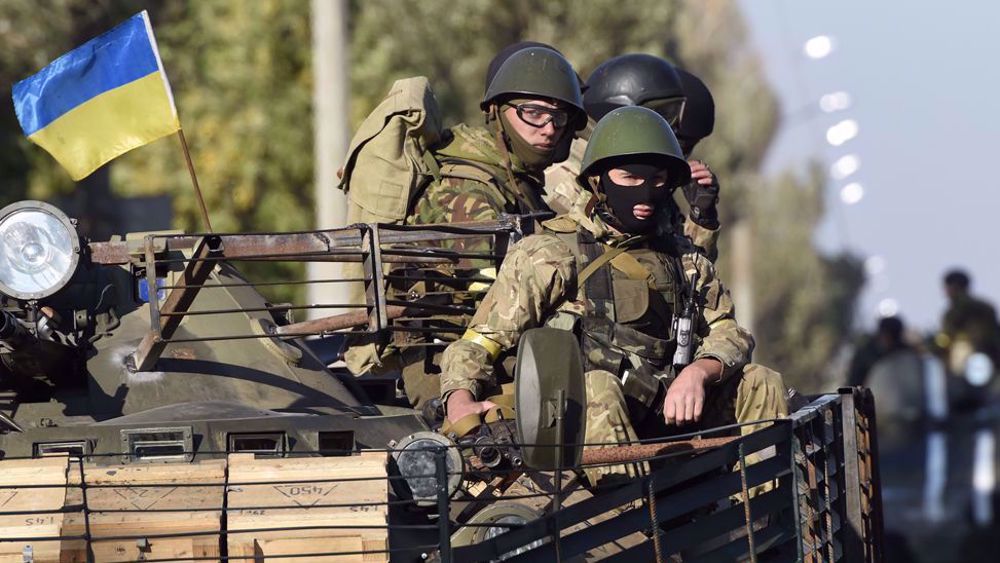
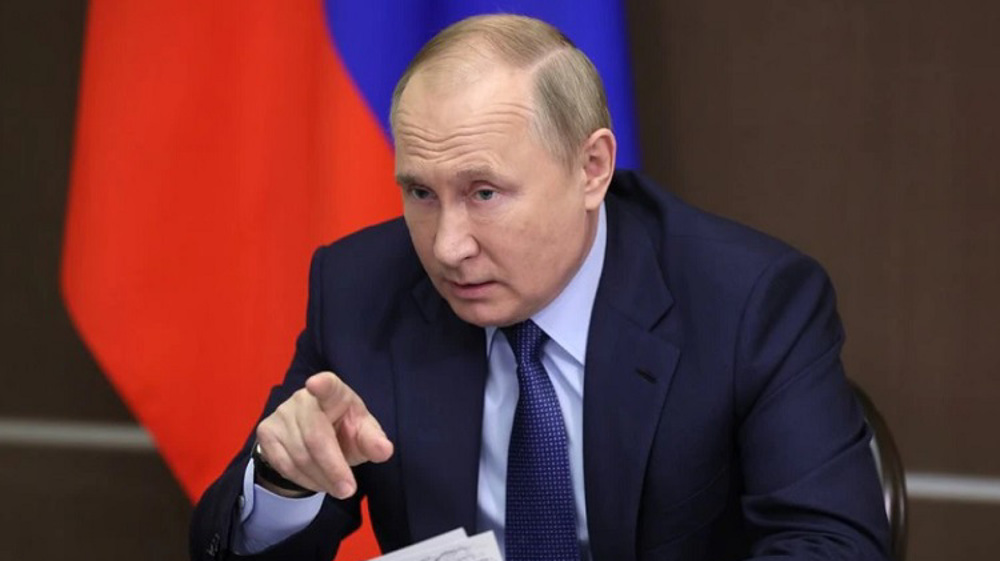






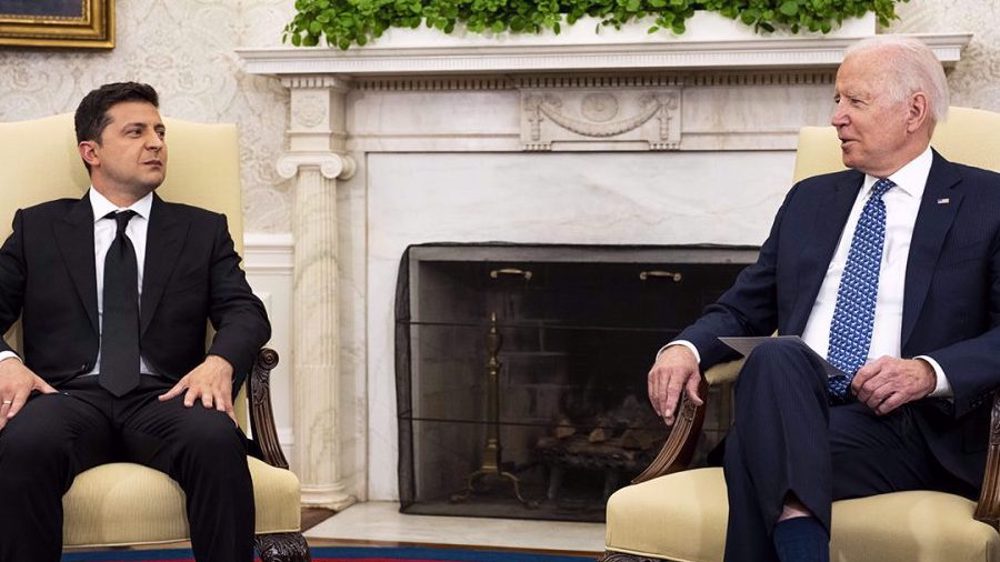
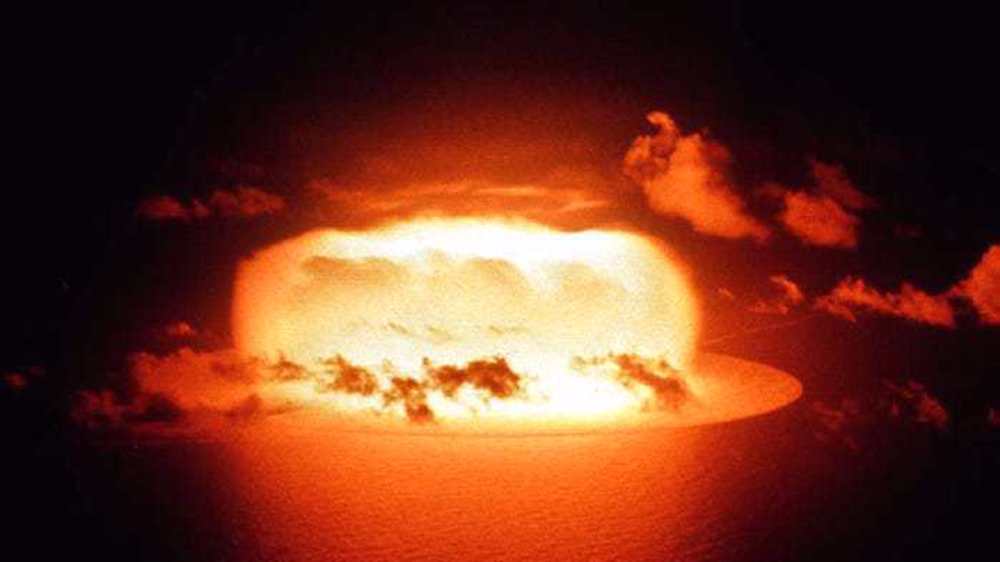
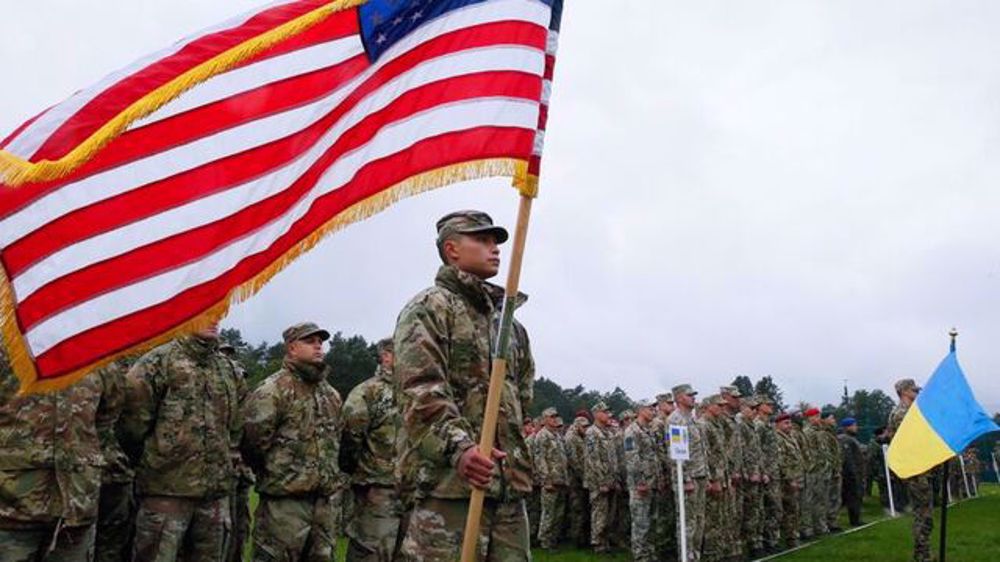

 This makes it easy to access the Press TV website
This makes it easy to access the Press TV website